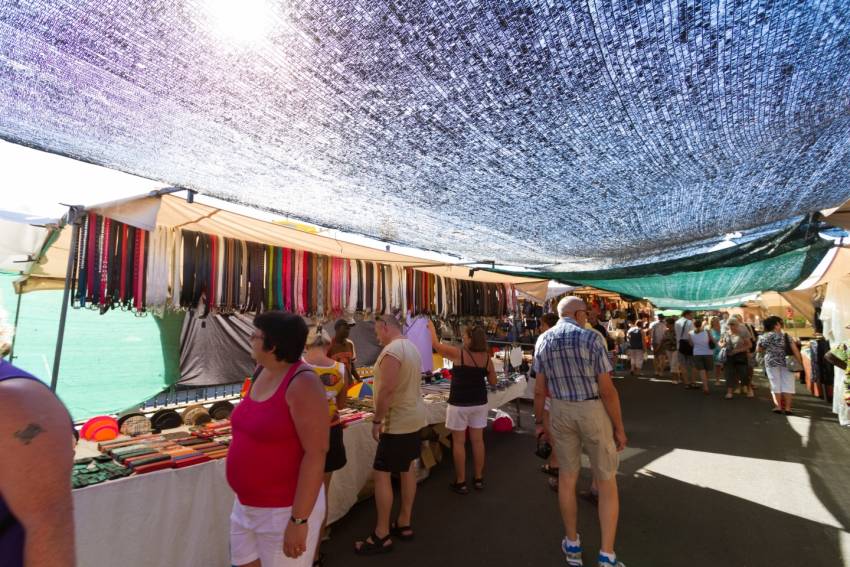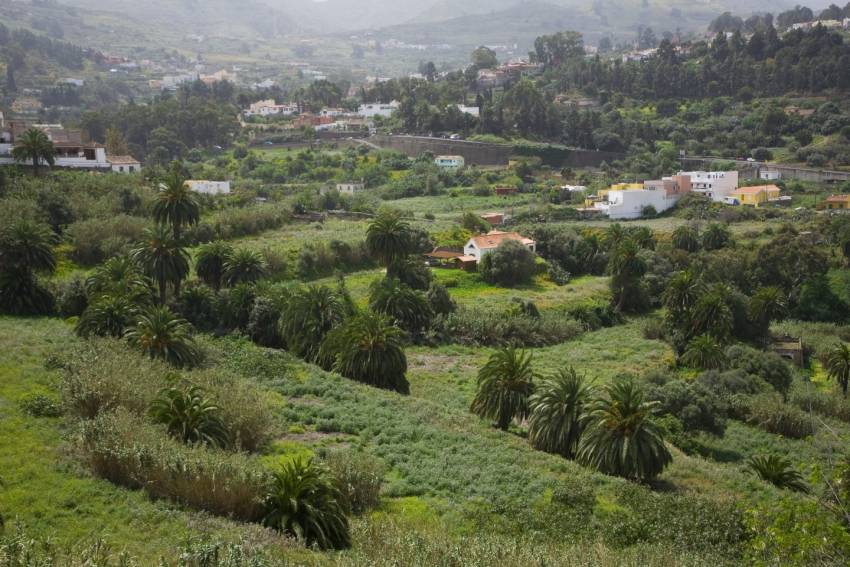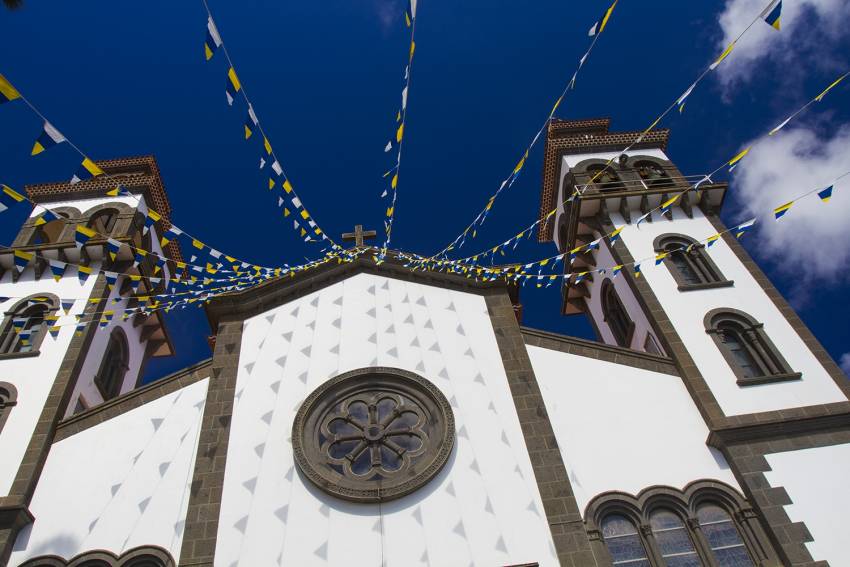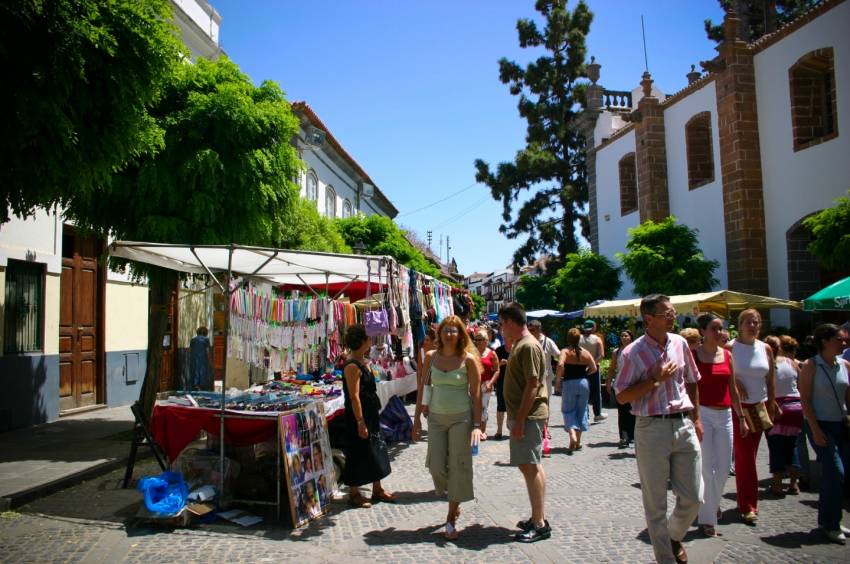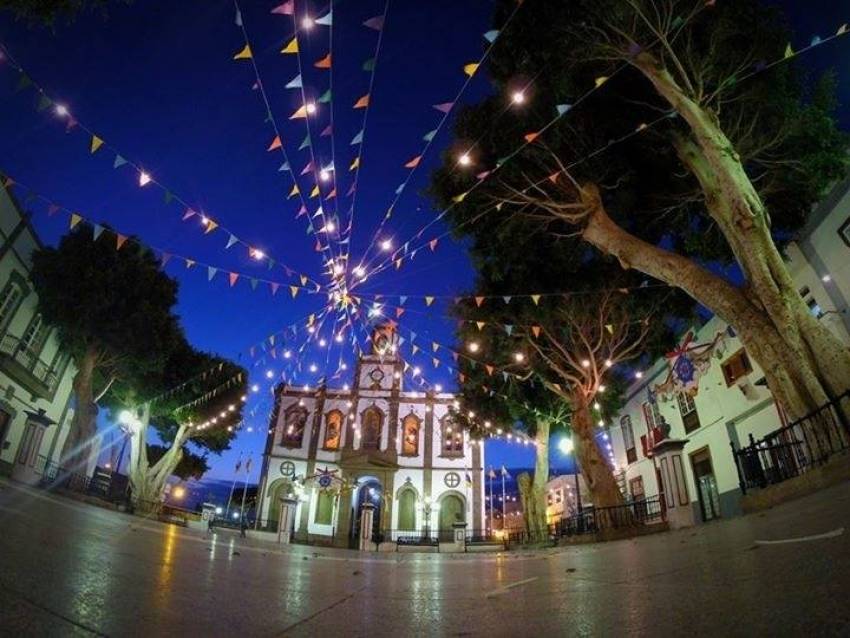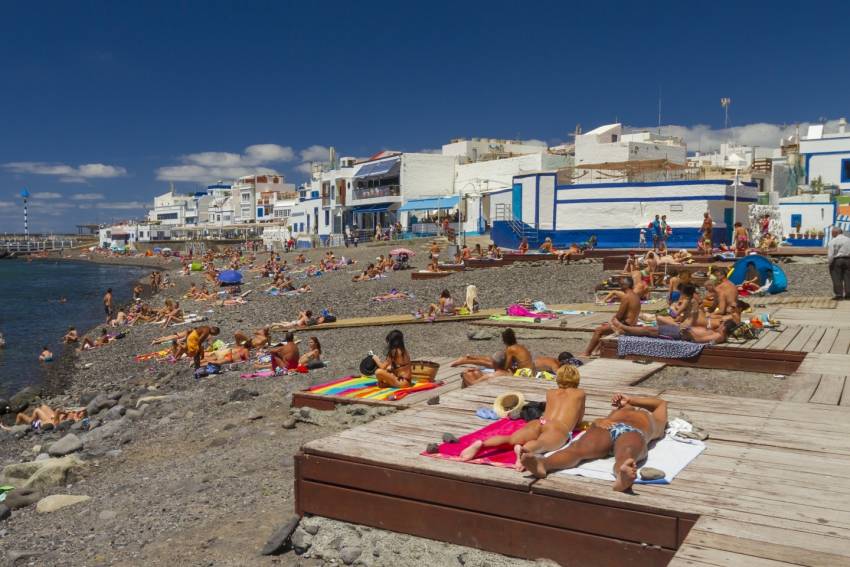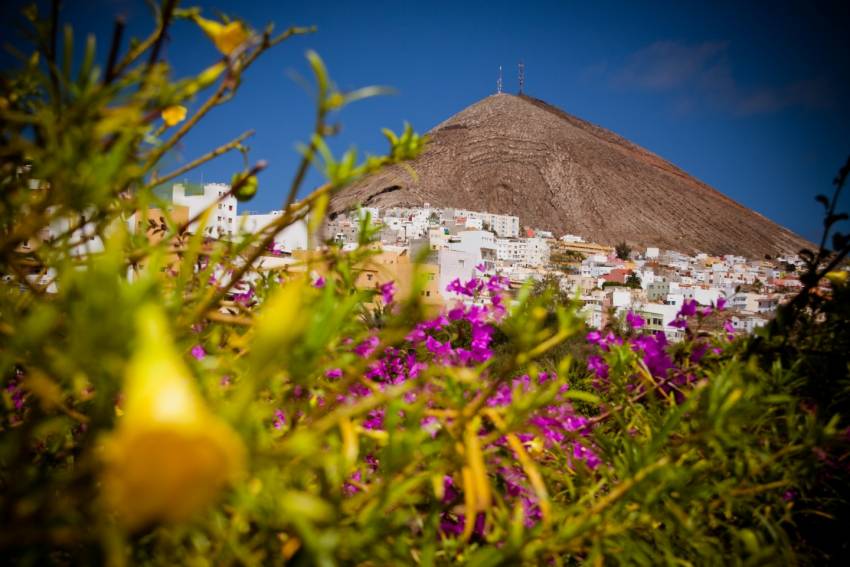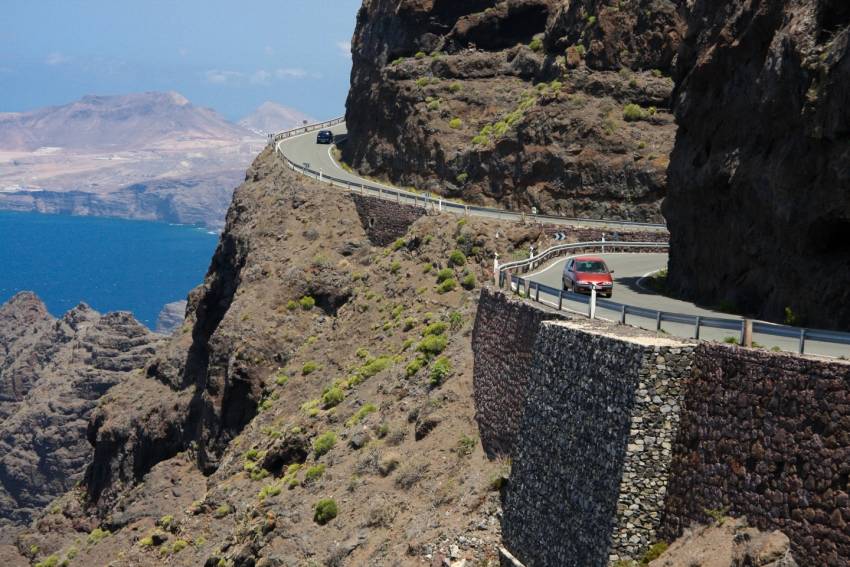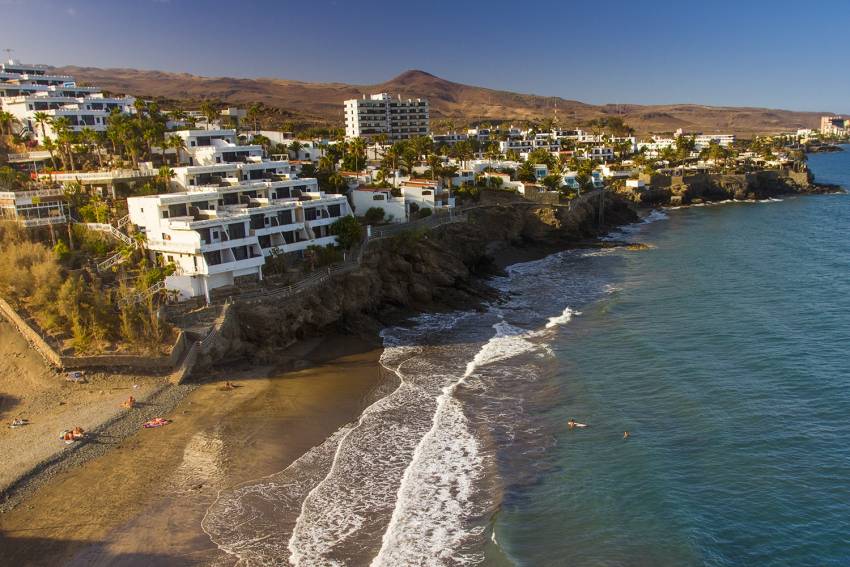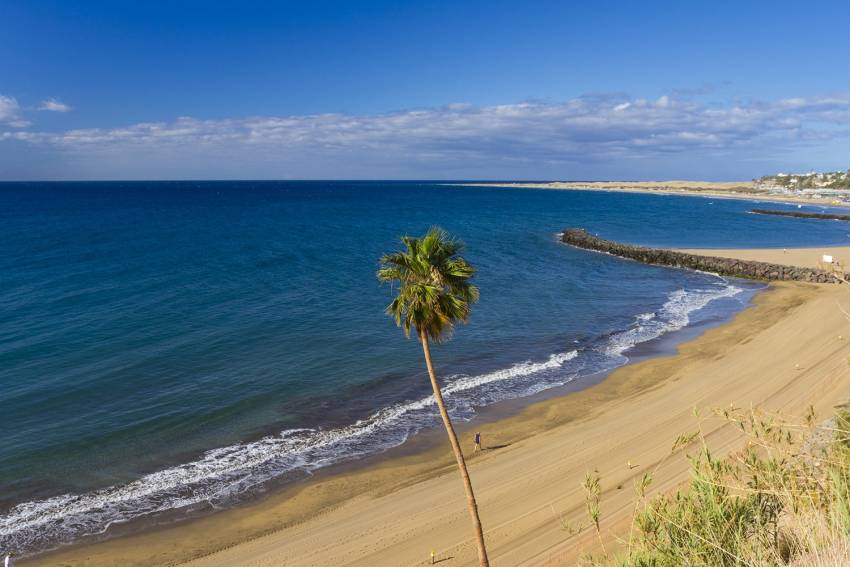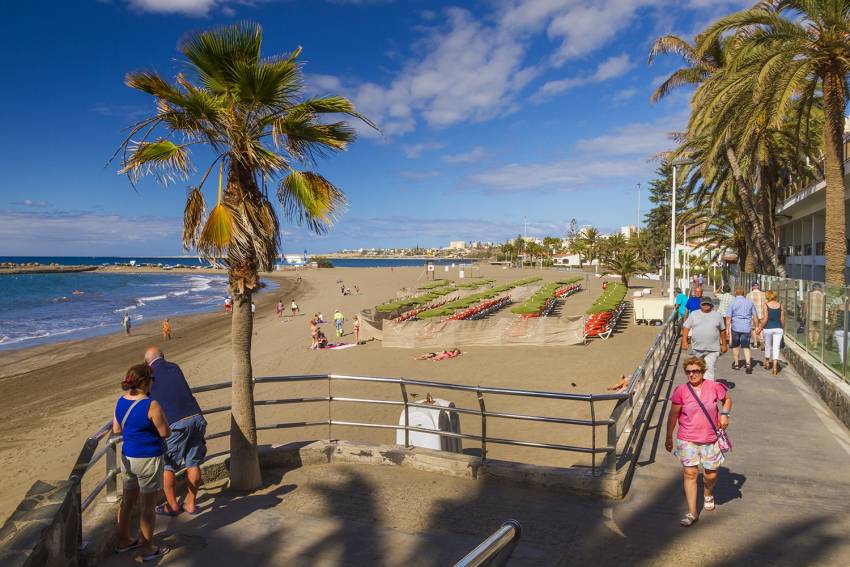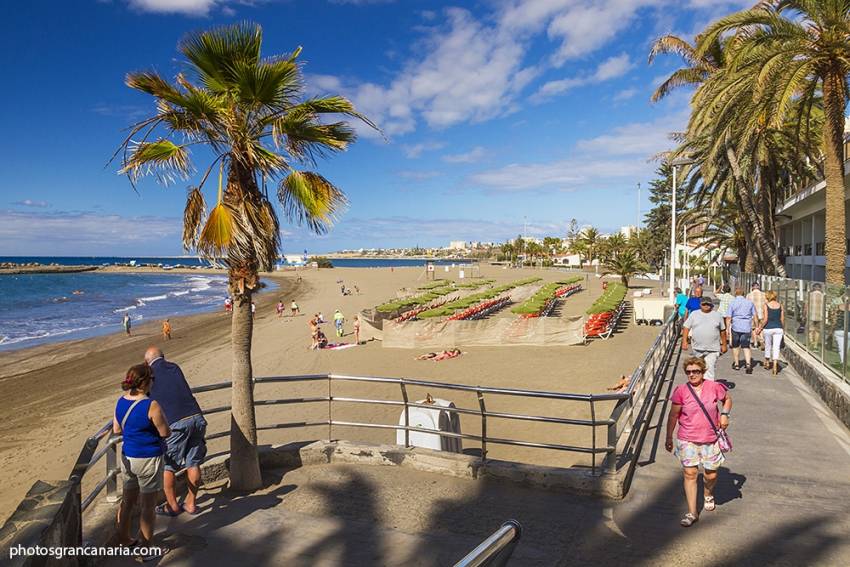Puerto Mogán on a Friday is the island's biggest outdoor market with stalls all along through the town and along the harbour wall.
There's hundreds of stalls selling everything from embroidery to fresh fruit and vegetables and you're bound to find something to take home. Combine it with lunch in the marina or a day on the beach and it's a great Gran Canaria day out.
We always recommend getting to the market early to avoid the crowds, especially if you drive and need parking.
A lot of people come by bus, but if you want to get the real holiday feeling why not take one of the glassbottom ferries from Arguineguín or Puerto Rico?
Arguineguín market is one of the big three in south Gran Canaria along with Mogán and San Fernando and fills the town every Tuesday morning. The stalls are all along the seafront on the cement factory side of town.
Most stall holders at Arguineguín also work the Puerto Mogán and San Fernando markets so there isn't much on sale that you only find at Arguineguín. That said, you can buy everything from silver jewelry to African baskets and it's a great day out. Look out for the smoothie stand at the south end of the market.
Getting to Arguineguin on a Tuesday is tricky if you leave it late as the buses and ferries are often full. Parking is a nightmare so consider hopping in a taxi rather than driving.
Avoid the crowded restaurants on the market side of town by heading back towards the beach for food. There's a string of restaurants facing the beach, including the excellent Taste Mesón.
Santa Brigida town was used by the British as their summer Hill Station when they controlled the coal trade in Las Palmas port in the late 19th and early 20th Century. Nowadays it a quiet residential town with a great weekend market (and a great wine stall) and a couple of excellent restaurants.
Moya has two claims for fame: Biscuits and a cliff-edge church square with a view of the deep Barranco behind the town. The view is spectacular, the biscuits not so much.
Moya church is a whitewashed Canarian church with stone edging in Neoclassical style. It's pretty but nothing more. However, it stands in a square right on the edge of the deep Barranco de Moya ravine. The view from the edge makes your tummy flip and is well worth a stop.
The town's famous bizcochos de Moya are much less exciting: Just dry biscuits with sugar on top that everyone in Gran Canaria has in the cupboard but nobody ever seems to eat.
Perhaps the real highlight of Moya is the walk around the Los Tilos de Moya laurel forest about five minutes drive from town. This is one of only two patches of laurels that survived the deforestation that followed colonisation and is one of the most biodiverse spots in Europe with dozens of rare Canarian plants. The circular walk takes you up the side of the valley and through the laurels.
It says a lot about Guía that it's cheese is more famous than the actual town. It's pretty enough but a sleepy kind of place, especially compared with Galder next door.
Santa Maria de Guía's church square and the cobbled streets running off it have their charm. The problem with Guía from a vistor's point of view is that there isn't much do there except for look at it. The Sunday market in the square only has five stalls: It's the place to go to get great Flor de Guia cheese right at source but doesn't sell much else.
Flower cheese
Flor de Guía is a soft, creamy and slightly bitter goat and sheep cheese with a faint odour of socks. It comes in wheels only a few inches thick and tends to sag with age. It's great stuff and is made with cardoon flower sap rather than rennet, making it the only local cheese suitable for veggies.
Cheese festival
Guía perks up during the annual Fiesta de Queso (cheese festival) in April/ May. It's the time to visit with lots of cheese and food stalls and general celebrations of anything cheesy.
If you're in Guía outside fiesta time, head to La Quesera organic cafe for a great selection of local cheese and wine. It's in a 19th Century house and chapel and has an organic garden in its courtyard. The address is Calle Pérez Galdós 27.
Teror is on all the lists of places you have to see in Gran Canaria and is one of the island's prettiest towns with lovely cobbled streets and wooden balconies. That said, the religious angle overwhelms all others in Teror, apart from the pungent sausage.
"Come and visit, look around, then go away". Agaete's unofficial motto isn't exactly tourist board stuff but then this is a town that marches to the beat of its own drum. While most Canarian towns are much of a muchness, here's a few ways that Agaete stands out:
- It grows Europe's only coffee crop
- It's the island's most musical town but it's best musicians don't play local folkloric stuff
- It has Spain's highest unemployment rate but doesn't have a sign welcoming tourists
- It hosts the island's biggest party but is quiet the rest of the year
Sunken gardens, hidden graves, etc
Almost everything that makes Agaete such an interesting town is hidden from plain sight. The entrance to the gorgeous Huerto de las Flores sunken garden is down a lane, round the corner and through an arch, while caveman necropolis just outside the town is hidden on a lava flow.. The music scene only starts in the evenings once most visitors have driven back to their resort.
Do a 2,5h tour in english with a young inspiring and enthusiastic local, learn all about this beautiful village and pay as much as you like. Good deal? We certainly think so!
Yearly blow out
The annual Bajada de la Rama fiesta in Agaete is epic with almost 100,000 Canarians invading the town for a whole weekend. It's good natured bedlam and the procession, with thousands of green branches and giant papaguevo papier mache figures, is the island's best.
The valley of longevity
The deep Agaete Valley, the most fertile on the island, cleaves it's way to the sea from the high Tamadaba massif. The valley's inhabitants swear that drinking it straight from the rock springs brings good health and longevity. Filtered by pine forests and kilometres of rock it's certainly makes the plants grow. There more variety of tropical fruits and flowers here than anywhere else in the Canary Islands.
The other Gran Canaria
The Agaete Valley is where Gran Canaria's other tourists go: The walkers and winter visitors who wouldn't be seen dead in a resort but still want the island's great weather. As a rural tourist destination is has everything: Traditional houses, great walks, a quiet town full of character, a seaside enclave and even the island's highest rock climb.
We think the Agaete Valley is the island's most comple rural tourism destination and the place to go if you want to experience local life and still get a tan.
Puerto de Las Nieves is the prettiest coastal village in Gran Canaria and while its iconic rock lost its finger in 2005 the village still has its fishy charm. The houses are all whitewashed, the window frames blue, and the beachfront restaurants serve local fish.
And it's sunny: The area has its own microclimate and gets almost as much sunshine as the southern resorts. Even when the whole of the north coast is cloudy, Puerto de las Nieves and Agaete get blue skies.
Things to do and see
Other than eat, swim and relax there's not much (and that's why we love it):
With the locals cramming in at the weekends for a weekend seafood feast, it's best to visit during the week when things are calmer.
Puerto de Las Nieves’ iconic Dedo de Dios (Finger of God) rock sadly lost its finger during a storm a few years ago. You can see the knuckle by looking left from the end of the jetty.
The natural swimming pools, with lava arches and plenty of space to sunbathe, are a great sunset spot.
The famous set of Dutch paintings that give the town its name are in the church, but it's permanently locked.
Most restaurants close in the evening and the nearest bars are in Agaete just inland.
The Agaete Valley behind the town is one of the prettiest in Gran Canaria and is full of traditional houses, palm trees and coffee. The road up ends at the top so you have to drive back the way you came.
Adventurous drivers head from Agaete along the west coast on the spectacular, cliff-edge road to La Aldea de San Nicolas. It’s windy and the drop offs extreme. For those with vertigo, it’s a no-no.
There're several natural, nudist beaches within walking distance.
Beaches
From the town walk up the hill to Turman (a housing estate on the little hill behind the town). Here, a dirt path runs to La Caleta Bay with its pebble beach and rock shelves. There's a set of convenient steps running down to La Caleta. It takes ten minutes to walk from the town up to Turman, and another 15 to get to La Caleta.
El Juncal is another 40 minutes walk past Caleta: It’s a pretty valley with a bigger pebble beach at its mouth. Juncal is clothing optional and often empty as the only way in is on foot or with a four-wheel drive. The walk is pretty dusty, but you get some great views of the coast and the spectacular west coast cliffs. Take food and water as there are no facilities at all at El Juncal. The water is crystal clear and the snorkelling is excellent.
Further away, to the south, is Guayedra Beach: A firm favourite for locals and people from the nearby town of Galdar. The walk from Puerto de Las Nieves has some steep drop-offs and takes about an hour-and-a-half. The beach is mixed sand and pebbles (no facilities) and mostly nudist.
Food
Most restaurants have outdoor terraces with views of the beaches. Until recently they all did seafood stapes like fried fish, calamares, sardines, etc. Now there's a couple of Italian options as well.
Always ask for an ensalada mixta as the Puerto de Las Nieves version always comes with tropical fruit along with the standard Canarian salad ingredients (lettuce, tomato, cucumber, red onion, tuna, asparagus, corn, etc). Order a salad for half the number of people at the table.
The Las Nasas restaurant is the most famous restaurant in town because of its lovely terrace. Arrive at 13.00 at weekends for a guaranteed terrace table. A
The Dedo de Dios restaurant (left of the stone jetty) doesn’t have outside terrace space but is cheap and does huge portions of very reasonable food. It even opens at night.
History hasn't recorded which maniac decided to build Galdar town on one of Gran Canaria's most recent volcanoes, but the result is there for everyone to see. As a long-term real-estate bet, it's not the greatest, but the houses clinging to the steep sides of the cone certainly liven up the view.
CLOSED: The GC 200 west coast road between La Aldea and El Risco closed for good in 2016. The new inland road, now part of the GC 2 is now open. From El Risco until Agaete you can still enjoy the stunning sights from the GC 200.
The West Coast road is Gran Canaria's most dangerous and ridiculous road. It's also one of Europe's top drives with cliff edge moments that have vertigo sufferers clambering out of the windows. It's not for the faint-hearted and if the government has it's way it'll be permanently closed within a few years.
If you like your motoring, it's worth renting a good car for the day just to experience the curves and switchbacks before the route drops into the ocean.
Driving from the south, head inland from Puerto de Mogán and take the turnoff towards Veneguera beach. Then just drive, perhaps with a stop at the green and purple rock stain for a smoothie at the roadside juice bar. Carry on through the Degollada de Tasartico gorge until you get to La Aldea town on the west coast. Drive through the town until you get to the pebble beach ( a great spot for a snack) before heading uphill again towards the Anden Verde cliffs (follow the signs for Agaete and Las Palmas).
Stop at the El Balcón lookout point for a cliff-edge view of the Dragon's tail to the south and the cliffs stretching north to Puerto de las Nieves. Then it's onwards to the highest stretch of road. If you're in any doubt as to the dangers of this road, then the huge rock-catching nets will convince you.
There's nothing along the road except for eye-popping drops and hairpin bends until you reach El Risco village. Stop at the ramshackle bar / shop in El Risco (try the mature cheese: It's as strong as it gets) or walk inland through the village and up the valley to Charco Azul pool and waterfall. You'll wind up every dog in the village but don't worry, they are harmless.
From El Risco carries on to Agaete town with its white houses and faint smell of mangos and coffee. Congratulations; you've done the West Coast road. Now you either turn around and drive it again on the outside of the road, or carry on to Las Palmas and back to the resorts via the motorway.
Warning: This road is often closed during and after rains due to fallen rocks. Do not attempt to drive it during rain! In 2010 a Guardia Civil policeman was killed after a storm while checking to see if it was clear. As of January 2015 bicycles, mopeds and motorbikes are banned on the road.
The road won't be around forever. Plans are afoot for a faster inland route and eventually, the original road will be allowed to drop into the sea. Apparently, its potential as a tourist route isn't high enough to justify the costs of clearing after the rains.
Gran Canaria Info recommends:
- Default
- Title
- Date
- Random

